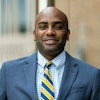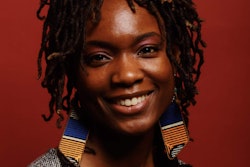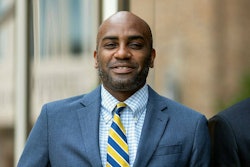In America, education remains the gateway to upward social mobility, to opportunity, to self-sufficiency, successful families and political participation. That’s the reality.
But the U.S. Supreme Court in its 1995 ruling in a Kansas City school desegregation case made it clear that it was out of the business of managing public school systems to protect African-Americans and other racial and ethnic minority students from the lingering effects of legal segregation.
Many observers say the courts, including the nation’s high court, in college desegregation and affirmative action rulings — for example, Hopwood vs. State of Texas and Podberesky vs. Kirwan — are signaling a willingness to strike down affirmative action programs and chip away at educational access for students of color.
Fueling the firestorm of legal debates is the “perception of the loss of majority privilege,” says Dr. Reginald Wilson, senior scholar at the Washington DC-based American Council on Education. But gains for students of color have been moderate at best, he adds.
Unfortunately, Wilson says, that hasn’t stopped politicians from seizing upon this perception and “irresponsibly heightening” it.
But the charge is not just being led by politicians. Howard University law professor Kenneth Tollett points to pockets of “white supremacist Blacks” and “angry” whites in the academy for sparking the fractious national debate on affirmative action.
“Neo-conservative Blacks,” says Tollett have helped advance and “sanitize attacks on affirmative action.” Among them, he says, are talk show host Armstrong Williams, author and scholar Shelby Steele, professor Walter Williams and former NAACP official Michael Meyers.
Meyers says he is used to ending up on lists like Tollett’s. With more humor than hostility, Meyers capsulizes his life of Blackness.
“I was raised poor and Black in Harlem. I went to ghetto schools up until I went to college and graduate school, but I’m not regarded as really Black,” says Meyers emphasizing “really Black” at least twice in his remarks to a reporter recently.
While Meyers wants the world to know he’s Black, he says race-based affirmative action programs and set-asides based on “skin color” have no place in higher education.
Designating “special [faculty] hires,” says Meyers, “help run the game of ghettoizing the greenery of Ivy Leagues. Affirmative action works to raise and clarify standards, but on too many campuses, the picture hasn’t been pretty.” College administrators, Meyers adds, are the ones who “have pandered to Black nationalists and tenured faculty by creating such nebulous descriptions as ethnic studies … and perpetuating paternalism.”
Among the newest allies of the anti-affirmative movement are public interest law firms and think tanks.
Waging legal battles for the principles held dear by the political right wing is the business of these law groups, observers say.
One recent case involved the University of Maryland. The Washington Legal Foundation won a victory in the 4th Circuit U.S. Court of Appeals case, Podberesky vs. Kirwan. The court ruling barred the University of Maryland from awarding race-based scholarships, despite evidence of past racial discrimination.
According to Richard Samp, WLF chief counsel, the law firm went looking for a case like the one at the University of Maryland to make its point about minority programs.
“We have long felt that we were looking for cases in the higher-education environment to assert the principle that racial classifications are wrong,” said Samp in a recent interview.
Vulnerable campus affirmative action programs have been easy legal targets for groups like the Center for Individual Rights and the Washington Legal Foundation, says Roger Wilkins, the Clarence J. Robinson professor of history and American culture at George Mason University.
Money Talks
No group has managed to seize more of the academy’s attention on affirmative action than the predominantly white National Association of Scholars (NAS), a conservative academic group made up of 4,000 college professors and graduate students in 50 states.
NAS president Stephen Balch attributes the visibility of the organization to strength in numbers and savvy leaders among its chapters across the U.S. and now in Canada.
A handful of foundation grants and a fast-growing membership have also helped anchor them in the academy, says Balch. More than 70 percent of the organization’s funds come from conservative foundations. Key among them, says Balch, are the John M. Olin Foundation (New York), the Sarah Scaife Foundation (Pittsburgh), the Lynde and Harry Bradley Foundation (Milwaukee) and the Smith Richardson Foundation (Washington, DC.).
Three NAS supporters — Scaife, Olin and Bradley — were among a group of conservative foundations that the liberal, public interest legal organization, Alliance for justice, accused of buying access to judges, lawyers and law students through all-expense-paid judicial seminars and law school programs
The Alliance for justice report issued in 1991 said 376 judges had been schooled in economic theory through George Mason University’s law and economic center, funded by Olin, Bradley and Scaife Foundations.
Lone Voice
For years, NAS was the lone voice in the academic wilderness crying out for “the restoration of intellectual integrity and individual merit to higher education,” says Balch, who helped found the organization nearly a decade ago.
Emerging almost simultaneously was the National Congress of Black Faculty, “an advocacy organization for Black faculty with an obvious affirmative action agenda,” says its founder Dr. Ronald Walters.
The Congress, the only national organization of its kind, is primed to take on the rigors of “defending affirmative action” on campus and “countering the NAS,” but it hasn’t, says Walters, chairman of the political science department at Howard University. There’s no strong funding base, membership is small and declining and Black academics can’t seem to unite under one umbrella, Walters explains.
When the Congress began 10 years ago in Washington DC, it signed up nearly 400 members, with the majority coming from traditionally white institutions. Today its active members total about 200.
“I couldn’t even get Howard faculty to come to the meetings. I thought I would get the HBCUs. They have the same problems this organization is dealing with — tenure, curriculum, affirmative action. But we face the same problems that others in society face. No one wants to take risks or be a part of a fighting organization.”
After 10 years, the Congress still hasn’t been able to find a foundation to support its efforts. “One foundation told me that there was no need for such an organization. Where are the foundations that are going to fund something like this?” asks Walters in frustration.
An organization like the Congress is needed like never before, argues Walters, especially when it comes to tenure and promotion. “Today when many of our Black scholars are coming up for tenure and promotion, says Walters, “they are increasingly facing a more highly organized, ideological force of members that are part of the NAS.
Says Walters: “We need to be there to counter that.”
Howard University’s Tollett isn’t ready to give tip the fight, but when it comes to organizing Black faculty, “we’re basically out-numbered.” Black faculty comprise four percent of all faculty in the academy.
Black faculty in the California system have made gains in the proaffirmative action movement, but only by building coalitions with other racial and ethnic groups, says Dr. Barbara Christian, a professor of African-American Studies at the University of California at Berkeley.
“[Black faculty] would not have much of an impact because we don’t have the numbers and also because there are other racial and ethnic groups impacted by affirmative action,” says Christian, who is involved not only in the Berkeley Black faculty organization but in a host of statewide groups of faculty working to stave off threats to affirmative action and core changes in the University of California system.
At the same time, the NAS is galvanizing its base of support and recruiting new members with the help of a full-time public information director, research department and well-read publications. In addition, the NAS has been able to capture a constituency of non-academics by pushing hot-button issues that go to the core of American higher education, says Glenn Ricketts, a spokesman for the NAS.
“There is a growing audience among the general public — people outside the academy — that are very receptive to the message we are trying to put out,” says Ricketts. Parents of college students and alumni are among them.
“I often tell people, we did not create the dissatisfaction with higher education that’s out there, we’re just trying to do something about it.”
Ricketts boasts that the organization witnessed the “biggest return on its public relations efforts” and experienced a surge in membership in the late 1980s when the NAS issued a policy paper on sexual harassment.
“That [paper] really rang a bell. We gave expression to people’s experiences and what they were feeling,” recalls Ricketts. The most recent of three policy papers or national reports on the 30-year decline of core undergraduate curriculum created “an explosion” in membership and visibility for NAS, he adds.
Gone from the curriculum, the report said, are “many of the required basic survey courses that used to familiarize students with the historical, cultural, political and scientific foundations of their society.”
Today, the NAS boasts about an extended family of “reformist organizations” that includes the Association of Literary Scholars and Critics, the National Alumni Forum, the American Academy of Liberal Education and the Association of History.
The NAS counts scholars such as Jacques Barzun, Eugene Genovese, Gertrude Himmelfarb, Mary Lefkowitz, Shelby Steele and James Wilson among its more distinguished and celebrated members.
Well-known conservative politicians such as GOP presidential candidate Bob Dole and Sen. Phil Gramm (R-TX) and even California Gov. Pete Wilson have gotten second-billing to some academic foes of affirmative action says Tollett.
The most recognized academic duo to touch off the anti-affirmative action avalanche is Dr. Thomas E. Wood and the late Dr. Glynn Custred, co-authors of the controversial California Civil Rights Initiative. The proposed constitutional amendment, to appear on the 1996 statewide ballot, would end racial and gender preferences in college admissions, hiring and promotions.
Custred and Wood succeeded in pushing their politics off the campus and onto the front-burner of American politics. Wood said of their efforts: “We don’t see ourselves as powerful men, but we have a powerful idea.”
Professor Shelby Steele has publicly hailed his fellow NAS members — Custred and Wood — as the new “icons of the Cultural wars” as well as “very, very regular guys” who sought his counsel in the early days of the anti-affirmative action campaign.
Steele, says Tollett, is but one contemporary example of African Americans who are willing pawns in the conservative academic agenda.
Another example he cites is Dr. Walter Williams, a Black economist at George Mason University, whose endowed chair is funded by the conservative, New York-based Olin Foundation. The foundation, one of the top four financial backers of the NAS, is headed by former Treasury Secretary William Simon, who was a leader of the Citizens Committee to Confirm Clarence Thomas.
Wood is not conciliatory to his NAS colleagues who seek compromise on the issue of civil rights and affirmative action. Says Wood: “There is no middle ground on the issue of civil rights.”
Although the NAS has never officially endorsed the California Initiative, Wood’s motivation, says NAS President Stephen Balch, strikes at one of the association’s founding principles: That individual merit in the academy and not quotas should be the basis of college or school admissions and even faculty hiring practices.
In published interviews, Wood once stated that fie blamed affirmative action programs for being passed over for a teaching post in favor of a less qualified “diversity hire.” Wood later recanted, saying that he did not actually apply for the job, and what lie was told about qualifications may not have been accurate.
Sowing Seeds of Meritocracy
Many inside and outside the academy say the seeds of the anti-affirmative action initiative can be traced to 1990, when Wood and other academics in the association converted their frustrations with affirmative action policies on California campuses into political action.
“That’s what’s at the root of the (California) initiative and part of the principle of liberal education…by judging people according to who they are as individuals you will in fact have a more diverse society,” says Balch, a former professor at John Jay College in New York and a founder of the NAS in 1987.
Black conservative Michael Meyers agrees that people should be regarded on an individual basis and not merely defined by their ethnic or racial identification. “Students are no longer students,” says Meyers, executive director of the New York Civil Rights Coalition and a member of the board of directors of the New York branch of the NAS. “They are Black, they are Hispanic, they are Asian….”
Groups vs. Individuals
Balch says he is deeply troubled by what he sees as a gradual erosion of individual rights over the last three decades. “What we [the NAS] have been working toward for a long time, is a different organization of society and the academy, based on individuality and individual rights” not on race or ethnicity.
Building on his understanding of the “original notion of affirmative action — outreach and assuring people that they would not be discriminated against” — Balch says there is a way to take “racial preferences” out of the college admissions equation, while still extending educational access to “all the people who are eligible to apply.”
A Dangerous Precedent
Prescriptions that undermine group preferences are dangerous, says scholar and author Roger Wilkins, and a recent legal ruling bolstering affirmative action opponents is meritless.
“I think there is no merit whatsoever in the 5th Circuit’s reasoning [Hopwood vs. Texas] when it concludes that using race to promote diversity leads institutions to ignore the individuality of Black students and that true diversity is only to he found in the experiences of individuals,” says Wilkins, who was an assistant attorney general during the Johnson administration.
At the root of the argument to dissolve racial preferences and group rights, “is basically white people who either don’t like Black people or who think that they have lost places at the table because of Blacks,” argues Wilkins. According to Wilkins, the 5th Circuit opinion also smacks of 19th-century racist jurisprudence that “regularly subordinated the common experience and knowledge of Blacks to racial fantasies that they then used to justify biased conclusions.”
Since President Lyndon B. Johnson in June 1965, unveiled his affirmative action plan [Executive Order 11246] in an address at Howard University, the vast majority of American colleges and universities have used affirmative action to diversify their teaching staffs and recruit and retain students.
The anger and backlash over affirmative action comes at time when the nation’s overall college-going rate has increased for every ethnic group — African Americans, Asians, Native Americans and Hispanics. What hasn’t changed, however, are the glaring disparities between the college-going rates of white and minority students.
It’s been more than 20 years, but Tollett says he saw the writing on the wall in the first public address he gave on affirmative action in the early 1970s.
“I continue to tell audiences that affirmative action was doing fairly well, comparatively, until it was brought to the campus,” declares Tollett. The most sustained attacks (to affirmative action) have come from the campus.”
The roots of anti-affirmative action in society and in education can be traced to the Old South, says Tollett.
“What this means is that much of the rest of the country now is openly espousing and pursuing policies that are hostile to the needs, interests, aspirations, and rights of Blacks as the Old South did after the First Reconstruction.”
Compared to corporate America, colleges and universities — through student recruitment and retention programs — have spawned some of affirmative actions’s best success stories, says Stephen Halpern, author of “On the Limits of the Law: The Ironic Legacy of the 1964 Civil Rights Act” and a political science professor at the State University of New York at Buffalo.
But as the quest for a place in higher education “grows more important,” combined with real or imagined fears about the future of society and the economy, says Halpern, “attacks on affirmative action will continue to exploit those fears.”
COPYRIGHT 1996 Cox, Matthews & Associates
© Copyright 2005 by DiverseEducation.com















